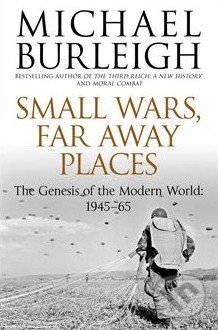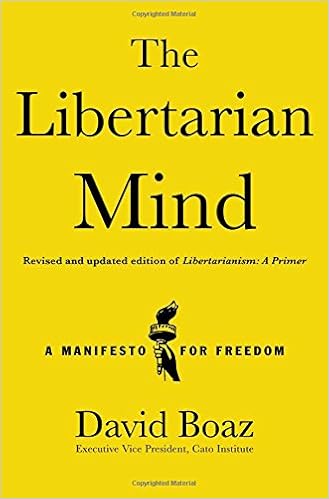[ by Charles Cameron — Merkel’s under attack for recommending Germans keep a two-week supply of food ]
.
Mormon faithful are exhorted by the First Presidency of their Church in a pamphlet titled All is safely gathered in “to prepare for adversity in life by having a basic supply of food and water and some money in savings.” Specific recommendations follow:
THREE-MONTH SUPPLY
Build a small supply of food that is part of your normal, daily diet. One way to do this is to purchase a few extra items each week to build a one-week supply of food. Then you can gradually increase your supply until it is sufficient for three months. These items should be rotated regularly to avoid spoilage.
DRINKING WATER
Store drinking water for circumstances in which the water supply may be polluted or disrupted. If water comes directly from a good, pretreated source then no additional purification is needed; otherwise, pretreat water before use. Store water in sturdy, leak-proof, breakage-resistant containers. Consider using plastic bottles commonly used for
juices and soda. Keep water containers away from heat sources and direct sunlight.
FINANCIAL RESERVE
Establish a financial reserve by saving a little money each week and gradually increasing it to a reasonable amount (see All Is Safely Gathered In: Family Finances guide).
LONGER-TERM SUPPLY
For longer-term needs, and where permitted, gradually build a supply of food that will last a long time and that you can use to stay alive, such as wheat, white rice, and beans. These items can last 30 years or more when properly packaged and stored in a cool, dry place. A portion of these items may be rotated in your three-month supply.
That’s a pretty comprehensive survival plan, and while it allows for those who are just starting to prepare themselves to begin incrementally, it’s first real target is three months’ preparedness and longer-term vision extends out to thirty years.
Note that the motivation here is to live in accordance with the divine will as it may be applicable to human circumstance.
**
Compare that with what the secular state of Germany is currently proposing. Deutsche Welle, under the heading What emergency supplies do you need? reports the following:
Germany’s government is mulling a plan requiring citizens to stock up on food and supplies in case of a natural disaster or armed attack. So what should you have in your pantry? Here’s our comprehensive checklist.
The stockpile plan outlined in the government’s “Concept for Civil Defense” paper obligates Germans to store 10 days’ worth of food and five days’ worth of drinking water. The idea is for people to have enough supplies – including cash and medicine – on hand to get them through an emergency situation before government assistance kicks in.
The level of preparedness proposed in the paper hasn’t been seen since the end of the Cold War. The strategy was originally commissioned by a parliamentary committee in 2012, but its release now comes amid a raft of new security measures and heightened terror concerns. Still, its contents aren’t new – German authorities have long urged households to store two weeks’ worth of emergency supplies.
The Federal Office for Civil Protection and Disaster Assistance, for example, has published a checklist online with recommended supplies for a 14-day period. The most important thing on the list is water – 28 liters per person for a fortnight, or around two liters per day. People can survive a few weeks without food, but only four days without liquid.
The Ministry of Food even has an online “calculator” to help you work out what kind of food – and how much – to stock up on. It recommends 4.9 kilograms of cereal-based products like rice, bread and noodles per person per fortnight. It also suggests 5.6kg of veggies, 3.7kg each of milk products and fruit and nuts, and 2.1kg of fish and meat. All food should be able to last without refrigeration.
The government also advises keeping a medicine cabinet stocked with supplies in case it’s not possible to get to a hospital. That means, among other things, a first aid kit, the necessary personal prescription drugs, cold medicine, painkillers, anti-diarrhea and nausea medicine, electrolytes, a thermometer and disinfectant.
Here the anticipated survival time is two weeks, or fourteen days.
**
I don’t know what the prophets, seers, and revelators of the First Presidency have been shown, what ISIS may be plotting, what German intelligence suspects, nor what the future has in mind for us. I do know that Matthew 6.34 counsels:
Take therefore no thought for the morrow: for the morrow shall take thought for the things of itself. Sufficient unto the day is the evil thereof.
and that this is generally considered sufficient precaution for the lilies of the field, but that readers of John Robb may well find it insufficiently flexible — if taken literally — to survive encounters with a succession of inbound black swans. And as is often the case with scripture, preparedness too has its place, as indicated by the “kingdom” parable of the wise and foolish virgins of Matthew 25.1-13.
I note here that the spiritual claims of the Church of Jesus Christ of Latter-day Saints affords the First Presidency the opportunity to call for far more extensive planning than the German Chancellor can ask of her citizens without considerable brouhaha.
Hence:
Three months (minimally) to two weeks (suggested) is the recommended preparedness ratio between the (Mormon) Church and (German) State.
Whence does authority derive?














